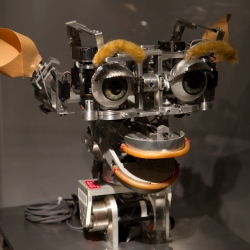
According to Vardi, sometime around the year 2045, you won’t have a job any longer because the robots will have taken it away from you.
In recent writings, Vardi traces the evolution of the idea that artificial intelligence may one day surpass human intelligence, from Turing to Kurzweil, and considers the recent rate of progress. Although early predictions proved too aggressive, in the space of 15 years we’ve gone from Deep Blue beating Kasparov at chess to self-driving cars and Watson beating Jeopardy champs Ken Jennings and Brad Rutter. Extrapolating into the future, Vardi thinks it’s reasonable to believe intelligent machines may one day replace human workers almost entirely and in the process put millions out of work permanently.
Well, looking back through the history of technological progress, you can certainly see his point. And once you’ve seen that point, you can laugh at it. And once you’ve laughed at it, you can call his local police station and request that they remove any science fiction movies from his home by force, because he’s clearly seen too many of them.
The problem with thinking that artificial intelligence is going to replace us in the workforce is two-fold. First, it cheaply ignores the impact every other form of technological progress has had thus far. Robots are used on assembly lines, yet there’s no drastic net loss of jobs. When the automobile was invented, it isn’t as though the buggy whip makers simply died off in unemployed starvation. There are other jobs to be had, most often created as a direct result of the advance in technology. Assembly line workers become machinists. Buggy whip makers go to work for the auto companies. There can be pain in the market in the short term as it is disrupted, but on a long enough timeline everything seems to even back out.
